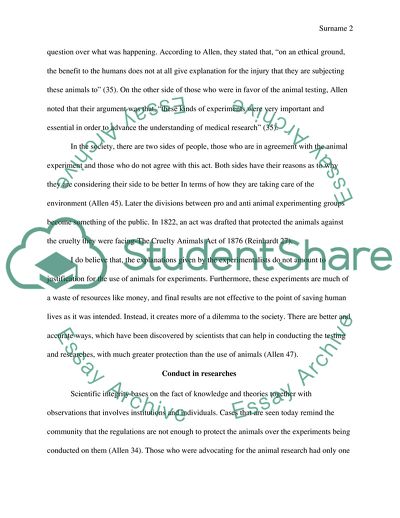Cite this document
(Animal Experimentation - Good Science or Pointless Cruelty Essay, n.d.)
Animal Experimentation - Good Science or Pointless Cruelty Essay. Retrieved from https://studentshare.org/miscellaneous/1790258-animal-experimentation-good-science-or-pointless-cruelty
Animal Experimentation - Good Science or Pointless Cruelty Essay. Retrieved from https://studentshare.org/miscellaneous/1790258-animal-experimentation-good-science-or-pointless-cruelty
(Animal Experimentation - Good Science or Pointless Cruelty Essay)
Animal Experimentation - Good Science or Pointless Cruelty Essay. https://studentshare.org/miscellaneous/1790258-animal-experimentation-good-science-or-pointless-cruelty.
Animal Experimentation - Good Science or Pointless Cruelty Essay. https://studentshare.org/miscellaneous/1790258-animal-experimentation-good-science-or-pointless-cruelty.
“Animal Experimentation - Good Science or Pointless Cruelty Essay”, n.d. https://studentshare.org/miscellaneous/1790258-animal-experimentation-good-science-or-pointless-cruelty.


